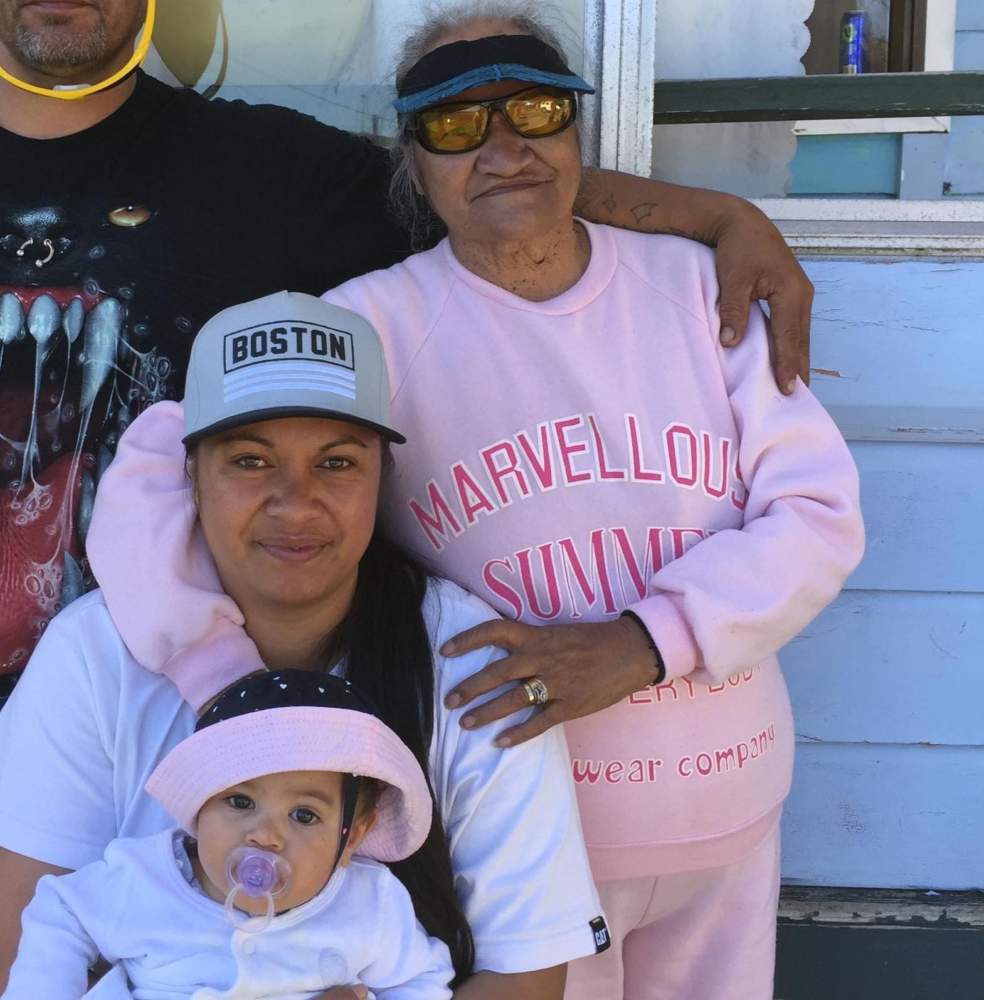
She sought the support of her paeārahi, Leanne Karauna, to help with the renovations because she also saw a bigger picture for the whole whānau.
Hinehuirangi’s vision was for the house to become a papa kāinga, where they could feed the whānau and future generations by establishing vegetable gardens and fruit trees. When her nan and koro passed away, the house was stabilised, and the land secured.
“The difference between Whānau Ora and other services we’d engaged with was there were no boxes to tick,” says Hinehuirangi. “The moemoeā I had for my whānau was very extravagant to others but to myself it was so simple.
“Finding other services to help was hard because you had criteria to meet, time restrictions, judgement and limitations. I had to change myself to be able to get what I wanted for my whānau. Which in the end, wasn’t the result I wanted.
“Whānau Ora is a pathway which provides other pathways. It makes you grow, and makes you want to dream, and it makes you want to improve.”
Hinenuirangi Reti
Hinehuirangi and her husband Michael were beneficiaries and struggled to pay the mortgage and her grandparents’ bills, while raising their family on the homestead. She says she pleaded with Michael to get a farm job, which they’d recorded on their Whānau Ora plan when they joined the programme.

“We’d waited until we were able to get back into that lifestyle. To get the job wasn’t to have a better life or to have more money – it was to ensure we wouldn’t lose the house. The tamariki have always been our motivation, always. The homestead will always be their connection back to Mangakino, back to their whānau, back to what they remember growing up.”
Hinehuirangi and Michael have been employed and thriving since November last year. While Leanne won’t take any credit for the pair finding work on the farm, Hinehuirangi acknowledges the role her paeārahi played.
“Leanne says we didn’t need much support, but it was more about the ‘kick up the bum’ really. It’s about the push, the kōrero, the keeping in touch, the staying on board. That’s where our kaha came from.
“Over the last few months, we’ve been high in the clouds with our money situation. Even going out for dinner – we’d never done it before. It’s something so simple that others take for granted but for us, it was like ‘OMG’ because we were used to living day-to-day, pay cheque-to-pay cheque. It was a Monday, and Michael was able to get gas and go to the supermarket. We’ve never ever been able to do that in our lives. We never had money on a Monday.
“We’re really lucky in Mangakino having Leanne as our navigator because she goes beyond her job. There’s the passion. Whānau Ora kicked my bum and woke me up – that’s what they do.”
Leanne says she’s witnessed Hinehuirangi’s confidence grow over the years.
“She was on the Board of Trustees of our school and was very engaged. She also led Matariki for four years in a row. She comes up with ideas and was responsible for bringing the Wahine Ora to Mangakino.
“She doesn’t know it but she’s a rangatira in her own right. That’s developed over the years. She probably always had it with the kapa haka, but she’s brought those strengths further into her life – just like securing those babies from a bad environment. It was through her leadership. Now those babies are living at the papa kāinga with Hine’s mum, and the whole whānau is supporting them to be there and safe. That’s true papa kāinga there.”
